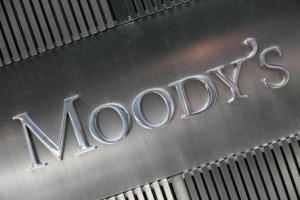Moody’s changes European telecom industry’s outlook from negative to stable
 Moody’s has changed the outlook for Europe’s telecommunications service industry from negative to stable anticipating the companies’ revenues to grow by 1 per cent to 2 per cent in the next 12 to 18 months.
Moody’s has changed the outlook for Europe’s telecommunications service industry from negative to stable anticipating the companies’ revenues to grow by 1 per cent to 2 per cent in the next 12 to 18 months.
In a new report on Wednesday titled “Telecommunications Service Providers – EMEA: Revenue Growth Rings in Change of Outlook to Stable”, Moody’s attributes the change in outlook to an expected increase in demand for broadband and higher spending by customers.
Carlos Winzer, an Analyst at Moody’s said: “Increasing demand for broadband, improved consumer spending capacity and a change in focus from price competition to service quality leading to price increases, will underpin European telecommunications service providers’ return to revenue growth in 2016.”
The credit rating agency noted that many companies are already offering premium packages and charging a premium for these services, including Telefónica S. A. (Baa2 stable), which reported domestic average revenue per user (ARPU) of €71.80 per month in the second quarter of 2015, up from €68.80 per month in the first quarter.
Moody’s says it expects positive average revenue per user as well, for Deutsche Telekom AG (Baa1 stable) in Germany due to recently increased data allowances and speed increases for premium clients.
The agency’s report however says negative pressure on revenue growth could build in some commodity-driven markets where GDP growth is slowing such as Kuwait, Oman, Qatar, the United Arab Emirates and Nigeria.
The outlook for African, Middle East and Turkish telecom markets remains stable.
“Conversely, the outlook on the ‘Big Three’ Russian mobile operators, Mobile TeleSystems PJSC (MTS, Ba1 negative), MegaFon PJSC (Ba1 negative) and Vimpel-Communications PJSC (Vimpelcom, Ba3 stable) remains negative as the economic crisis in Russia continues to drive down profitability”.
Moody’s says it also expects merger and acquisition activity in the industry “to be limited to strengthening existing footprints in a bid to enhance mobile/fixed convergence, rather than making large debt-funded acquisitions that would put pressure on leverage and potentially create negative pressure on companies’ rating.”
By Emmanuel Odonkor
